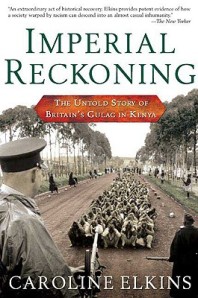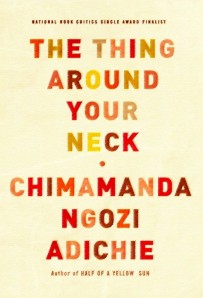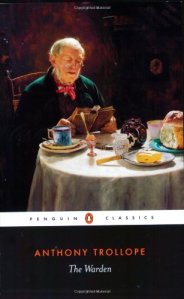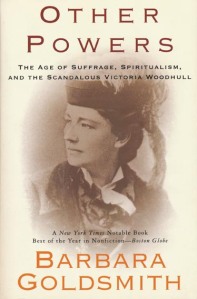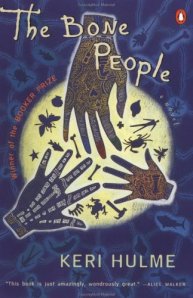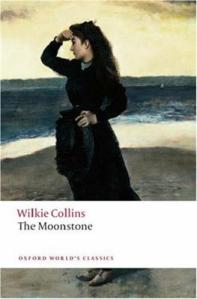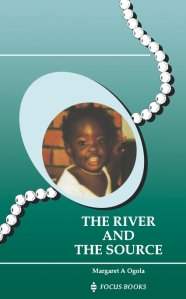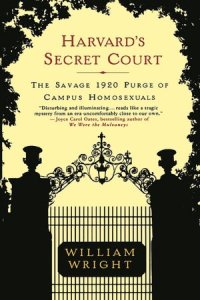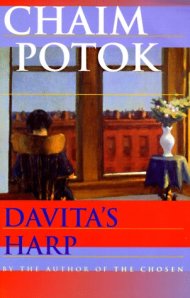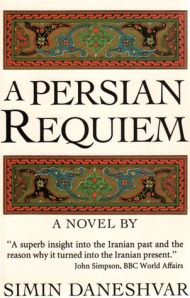Archive for the ‘Kenyan Authors’ Category
Catching Up pt. 2: Imperial Reckoning, The Thing Around Your Neck, The Warden, Other Powers, The Bone People
Elkins began researching the Mau Mau uprising for her dissertation, but the history she uncovered was so much more brutal than the (brutal) murders of white British settlers that she set out to find. This book was the product of a decades’ worth of research into the detention, starvation, and torture of over half a million of one of Kenya’s largest minority ethnic groups, the Kikuyu, by the colonial British in the 1950’s. Less than ten years after joining the fight against Germany in WWII, the British forced almost all of Kenya’s Kikuyu into concentration camps of their own, where they were subject to all of the same dehumanizing treatments that could be found in Germany’s death camps short of outright genocide–very short. By rhetorically framing the Mau Mau resurrection as barbarism and the Kikuyu as uncivilized, they were able to extinguish categorical distinctions between the two, equating all Kikuyu with Mau Mau, and denounce them for their dangerous natures, thereby justifying their detainment. The murders of tens of white settler families committed by the Mau Mau in defense of stolen land were certainly horrific, but the persistent labeling of them as terrorists (as well as subhuman), as opposed to freedom fighters in defense of a legitimate cause, was strategically meant to detract attention from the widespread systematic violence enacted upon the Kikuyu by the British over the course of a decade in a deadly show of authority. In case that distraction wasn’t enough, colonial offices were very thorough at destroying evidence. Nonetheless, Elkins painstakingly uncovers and describes each stage of “The Pipeline” camp system and reveals the identity of those who participated in the maintaining the camps, including missionary groups. Equally disturbing was the way in which the British rewarded “saved” or “confessed” Kikuyu with official status within the camps and set up their recently colonized Indian underclass as military officers, small business owners, and politicians within Kenya, sowing seeds of disunity that would persist through Kenyan independence in the 60’s. I read this book for my Kenya project, and it also counts toward Kinna’s Africa challenge. It was mind-blowing to read this while actually in Kenya, and to understand that despite the culture of silence around these events, the wounds are so recent, the country is so young, the human capacity for evil is so strong.
Adichie became an instant favorite of mine after reading Half of a Yellow Sun and seeing her participate in a talk last spring at the Met on something like The Hero in African art. This collection of short stories deals with the Nigerian diaspora: what it takes to leave the country, what it means to be representative of the country, what it means to be a Nigerian outside of Nigeria, what it means to be someone neither here nor there. If you’ve watched Adichie’s bit on The Danger of a Single Story, you know that she’s particularly interested in the ways in which we frame our own self-understandings, and the need to assert them on our own terms so that they’re not obscured and made homogenous by the dominant culture. Her subjects come from a variety of backgrounds and deal with the feeling of dislocation in different ways and settings. This theme was made most explicit in the story “The American Embassy”, in which a woman wonders how best to present her difficult past to the authorities, how to manipulate the too-real danger she’s in in such a way that they will understand and grant her asylum. My favorite story, though, was “Jumping Monkey Hill”, about a Nigerian woman writer who must defend her piece as “authentically African” to a workshop led by a sexually harassing older man in South Africa who insists that the behavior of her protagonist is unrealistic. The final story, “The Headstrong Historian”, reminded me of The River and the Source in the way that it portrayed the passing effects of generations on one family, though it was slightly more ambivalent about the outcome. Of course, some stories stuck with me better than others, but there weren’t any in this collection that I didn’t enjoy or find interesting at some level.
In this novel, the introduction to the Chronicles of Barsetshire, the clergyman Mr. Harding enjoys a comfortable country existence with his daughter, Eleanor, as warden of a home for the old and infirm. The young city reformer John Bold, however, takes issue with the sizable amount that Mr. Harding receives for this position, pointing out that, at the time of the will, the law was such that the difference in allowance between Mr. Harding’s and his wards would have been less, that certainly the will was not written with recent changes in land tax and such in mind that has so unfairly benefitted Mr. Harding instead of the institution’s poor elderly. In taking legal action and turning the wards against him, Bold risks more than the ill-will of Mr. Harding’s church community–he risks losing the love of his life, Mr. Harding’s daughter. However, the battle between Bold and Harding is not so simple, for Mr. Harding, having never given the issue much thought, is horrified to think he might be living immorally, and Bold increasingly wonders whether the potential ruin of lover’s father, a good man, is worth the point he wishes to make about economic inequality. I found Trollope’s descriptions of the setting evocative, and liked that most of his characters were made multi-dimensional in relatively few pages. However, I thought The Warden was kind of boring. Differing interpretations of a will, all of which might imply only slightly different outcomes, wasn’t enough to make me feel any kind of tension or suspense. I wasn’t invested. A subplot or two might have helped, but then The Warden would had to have been a completely different book. I read this one because pretty much everyone everywhere has always told me that it’s great (okay, a *slight* exaggeration), but I was underwhelmed. If I didn’t like The Warden all that much, might I enjoy the rest of the series? Or should I assume it’s not for me?
Victoria Woodhull, at different times a prostitute, free lover, spiritualist, suffragist, and a presidential candidate, lived during one of the most outrageously transformative eras of American history: the second half of the 19th century. She was such an enigmatic and adventurous character that, in this book, Goldsmith is able to use her personal history to bring to life the entire period of reform and conflict. She touches on everything from the Civil War and abolition to Reformation and the western expansion of the railroad, the declining reign of circus entertainment and the post-Gold Rush market crash to the successes and failures of early feminist organizations and the celebrity awarded spiritualist seers and mediums. At the center of Goldsmith’s narrative, though, is Woodhull’s influence on the Beecher-Tilton adultery trial, a trial that held the public in thrall for over two years as they awaited the verdict on the fidelity of Henry Ward Beecher, one of America’s favorite preachers. This event speaks worlds about the sexual politics of the day as they were typically understood by the public at large, and as they were challenged vociferously by Woodhull. If this makes it sound as though Goldsmith might have been too ambitious with this book, as though this was simply too much to try to cover all at once, I would understand. But, believe me: Goldsmith DOES IT. AND she makes it look easy. She connects the dots, weaving a thick fabric of different historical threads that really DO all come together in a very clear and satisfying picture. And through it all, Woodhull is not lost. Widely ostracized in her own time by almost all of her contemporaries working equally hard to hasten justice, Goldsmith brilliantly portrays Woodhull as complex, erratic, imperfect, and catalytic. This might be the BEST book about American history I’ve ever read, so I urge all with a passing interest to give it a try. I’ll go so far as to say I’ll be shocked if it doesn’t fully engage and absorb you. I can’t wait to encounter Goldsmith again! And: despite the fact that it wasn’t on my initial list, I’m going to go ahead and count this book towards my spiritualism project, since Woodhull was a popular spiritualist figure and I did learn some new things about what that meant at the time, so why not.
Ooof, The Bone People. Where to start with this one?! Kerewin is part Maori, part European, and lives on the coast of her native New Zealand in an old lighthouse tower with a spiral staircase. She’s a failed painter, incredibly bitter and misanthropic, desiring no company but wine, whiskey, rum…or whatever alcohol’s around. But company finds its way to her in the form of a strange young boy who can’t speak, yet communicates worlds of mysterious origin and pain. When she meets his adoptive father and finds something about the sad man alluring, she becomes swept up in their bizarre, severely dysfunctional little patchwork family. With each member representing different aspects of culture clash, Kerewin must revisit her own past even as they’re focused on uncovering the boy’s. Unfortunately, they are all so focused on what’s happened that they’re blinded to the inevitable future of hurt that lays before them, one from which they may or may not heal. Hulme’s writing is exceptional. I’ve never read prose quite like hers, so playful and clever yet…harsh. The real magic of the book is the subtle sense of foreboding you feel from the first few pages, a sense that only grows stronger despite a lack of tangible evidence that it should. This odd tale had me on tenterhooks before I realized there really was something to be concerned about, here. Namely, the psychology of abuse, so frighteningly dissected. The power of this novel had me jaw-dropped, but it’s likely not for everyone, particularly those with special sensitivities to violence against children. The one thing I wished for more of was Kerewin’s familial backstory; I hoped that the more mythological part at the end would wrap up more neatly and concretely. Regardless, this book has haunted me since I finished it, and I’m sure I won’t forget it any time soon.
Written by Emily Jane
September 12, 2012 at 10:42 pm
Posted in Kenyan Authors, Kinna's Africa Reading Challenge, Non-fiction, Novels, Short Stories, Victorian Spiritualism
Tagged with Anthony Trollope, Barbara Goldsmith, Caroline Elkins, Chimamanda Ngozi Adichie, Imperial Reckoning, Keri Hulme, Other Powers, The Bone People, The Thing Around Your Neck, The Warden, Victoria Woodhull
Catching Up pt. 1: The Moonstone, The River and the Source, Harvard’s Secret Court, Davita’s Harp, A Persian Requiem
Well, I’m back from an amazing, stimulating, exhausting trip to Kenya, and now it’s time to whip this blog back into shape. I’m much too far behind to write full reactions to everything I’ve procrastinated writing about this summer, which is really too bad since almost all these books are quite deserving of them! May some mini-reviews suffice to merely bring me up to speed:
Wilkie Collins won my heart with The Woman in White last year and The Moonstone resolutely confirmed my love. This mystery is told from the revolving perspectives of a strong cast of diverse characters, all with distinctive voices and hidden agendas, reflecting on the night that a famous gemstone was presented to one Rachel Verinder on her birthday by her uncle only to go missing that very night. A detective is called in to unravel what can only be a messy family affair, but quickly realizes that the case of the missing moonstone diamond, taken from a Hindu shrine by Rachel’s uncle during the siege of Seringapatam, is not confined to the Verinder family or estate. In fact, the mystery of the stone’s repeated disappearances spans continents, cultures, and centuries. My copy includes an excellent introduction which makes the point that, though Collins plays on orientalist fears of the Indian Other, he also raises the question as to what constitutes theft in a colonial context. No one is completely innocent…but are they all thieves to the same degree? This, along with Collins’ exquisite storytelling, made The Moonstone one of this year’s favorites.
This book was one of my Kenya project reads, and also counts toward Kinna’s Africa Challenge. The River and the Source follows four generations of women through changes like colonialism and urbanization, faith and learning. It begins with Akoko, the most beautiful and respected young woman in her Luo community, renowned for her intelligence and character. Her daughter embarks on a new path when she converts to Christianity and enrolls her children in a religious school, from which her daughter eventually graduates before moving to Nairobi. This daughter’s own children, headed toward medical school, now lead an entirely different kind of life from their grandmother and great-grandmother, Akoko, yet Akoko’s strength of spirit appears to be genetic and nourishes each woman through adulthood and self-realization. This short novel is certainly sweeping, but flows so well that it’s not distracting or fragmentary. I really liked the way that the women in this story were so encouraging of each other in every new thing they tried, confident that even the biggest mistakes contain opportunity, that temporality is to be embraced though memory of the past is key to understanding the present. A real pleasure.
Harvard’s Secret Court: The Savage 1920 Purge of Homosexuals started off strong. Wright effectively personalizes the stories of the many young men who were cruelly, quietly, and systematically persecuted by that great so-considered bastion of enlightenment, Harvard University, for their real or perceived homosexuality. Not only were entire groups of friends expelled from the ivy league, but they remained the targets of school officials throughout their entire lives, suffering obstacles to further education and employment. Gay and/or effeminate men within school bounds as well as outside them (particularly in port communities) became scapegoats, unsurprisingly, at exactly the moment at which Harvard was forced to re-define “The Harvard Man” due to the increasing presence of Jews, Irish and Italian immigrants, and women. This history is fascinating, disturbing, and important; I applaud Wright for bringing it to light. However, he started to lose me about halfway through the book, when he started to stray from events and began to speculate on the “true” sexualities of those involved in the purge: i.e., whether or not they were truly gay, kind of gay, or just experimenting (?). I wasn’t comfortable with the authority he claimed to determine the nature of his subjects’ experiences, nor was I willing to take for granted that such experiences must be mutually exclusive. Furthermore, I didn’t see why such a determination would be relevant to a history of discrimination, anyway. He officially lost me toward the end, though, when it seemed he was trying to tie up his narrative by relating this purge to a universal, ever-present phenomena of homophobia which he claims is innate in human nature (!), suggested by the fact that it is often a “gut-reaction” that is not always adequately challenged by the application of logical thought. If you can count all the problems implicit in that line of reasoning, you get a GOLD STAR! I can’t.
When I read My Name Is Asher Lev last year, I was blown away, and after Jenny told me that she loved The Chosen so much that she didn’t want to read another of Potok’s novels for fear of disappointment, I got it into my head that disappointment by ANY of his novels was unlikely. Well, Davita’s Harp was a dose of reality. Davita, the daughter of atheist communist activists in early twentieth century Brooklyn, experiences real loss and must confront Life’s Big Questions at an early age. The century’s extremist politics play themselves out in her living room, but she can’t reconcile them with her personal experience without connecting to her Jewish faith and community. To her parent’s surprise, Davita’s struggle is not undermined by her commitment to religion, or the “opiate of the masses”. In fact, religious observation enables Davita to wrestle with global and historical injustice in a meaningful, constructive manner. Davita is precocious, ambitious, and best of all, she’s critical of the sexism that she encounters in Orthodox circles, making her an inspiring protagonist whose development offers promising insight. Davita’s Harp has a lot to offer young readers but, unlike the child narrator in My Name is Asher Lev, Davita’s voice does not transcend age barriers well. Moreover, the story was just kind of slow and…boring. Something about the pacing. Eh, too bad, really. Better luck next time?
In 1969, Simin Daneshvar became the first published woman novelist in Iran, though this was not the first of all the firsts to her name. Nor is this the reason that A Persian Requiem is still (apparently) widely read. No, A Persian Requiem is still (apparently) widely read, I believe, because it’s good. REALLY good. Zari, the book’s protagonist, must keep her family safe when her husband Yusof refuses to sacrifice his peasant’s crops to British and Indian occupying soldiers. This means carefully navigating personally detrimental social relationships amongst the town’s upper classes, maintaining communal goodwill, and thanking God for the safe delivery of her eldest child by acting on her vow to visit weekly with prisoners and the mentally ill. Her husband is courageous, acting to force the hand of the future and bend the will of progress. But she is courageous, too, and is determined to prove it despite of–no, through–dedication to her children. In other words, she struggles with the role of woman as described by Simone de Beauvouir, to re-produce the very means of life from which men make “the world”. Recognizing this limitation, she wrestles with it, finding strength within it even as it’s redefined. This is a story written around many stories, with colorful characters written throughout, from the Irish once-journalist to the unstable, imprisoned feminist revolutionary. While I appreciated her class and gender themes the most, Daneshvar’s prose and scope encourage me to recommend her to all regardless of interest in those particular narrative threads. There’s a little something for everyone in this novel, I’ll bet.
…and that’s all for now. Part 2 coming soon. Feels good to be back, all!
Written by Emily Jane
September 6, 2012 at 2:49 am
Wizard of the Crow, by Ngugi wa Thiong’o
Oh. My. Gosh. LIFE SOMETIMES, RIGHT?! A few months ago I warned you that I would likely be very busy with my last semester of undergrad, and other things, and that posting would be slow. Little did you (or I!) know, I was actually about to disappear from this blog for months. MONTHS.
I guess the good news about not having been able to do hardly any just-for-fun reading lately is that there’s not very much to catch up on. On the other hand, it’s been really difficult to revitalize my drive to read, which makes me sad. It’s all over now, but I am intellectually exhausted and want to do nothing but watch X-Files (good thing it’s streaming on Netflix!). So, I’m working on that. In the meantime, though, I will try to remember what I can about the last book I did finish, which also happened to be GREAT and will surely remain one of my favorites this year.
Wizard of the Crow takes place in the fictional country of Aburiria, a totalitarian state in which the people suffer under a dictator who squanders all the nation’s resources on a modern Tower of Babel, a structure tall enough to unite The Ruler with the ultimate power and omniscience of God. But he is challenged by a growing number of subversives lead by the unlikely pair of the elusive mystic Kamiti and the practical, confrontational Nyawira. Posing together as The Wizard of the Crow, they begin to diagnose the corrupt government officials and businessmen that seek their help in secrecy with internalized racism and destructive envy of white male power. Finally their reputation leads them straight to The Ruler himself, who is yet to identify them as the source of the political humiliation he is beginning to suffer at the hands of unruly queuing peasants and, worst of all, non-submissive women, in front of his Global Bank acquaintances and the international community at large.
Though the book deals with heavy themes, it is written with a strong sense of humor and never felt anything but lively despite its great length (though I will admit the last hundred pages–of about seven hundred–were a bit pedantic!). I loved his use of magical realism, his dialogue, and especially his female characters. I especially love that they led the resistance by exaggeratedly fulfilling their traditional roles and, later, by establishing an all female people’s court to try and punish perpetrators of domestic violence, revealing links between “the personal and the political”. This kind of satire may seem familiar, but this book feels far from tired.
Though I know little of Kenya’s history, I think it’s fair to read what I do know into this novel. But having just finished a course on the DRC and Rwanda, it seems equally possible to read a bit of post-colonial Africa in general into it. Towards the end, Thiong’o plays explicitly with pan-Africanism, which I think validates that reading. I look forward to learning more about Kenya’a specific past with this book in mind.
Inventive, ranging, and assertive…this chunkster comes highly recommended.
This book counts toward both The Africa Challenge and my own private Kenya project, on which I have fallen far, far behind. Ditto A Year of Feminist Classics, which I plan to catch up on in good time.
Written by Emily Jane
May 18, 2012 at 9:56 pm
Posted in Kenyan Authors, Kinna's Africa Reading Challenge, Novels
Tagged with Ngugi wa Thiong'o, Wizard of the Crow
Reading Projects: Kenyan Authors and Victorian Spiritualism
This semester of school will be my last…at least for the foreseeable future. I’m both happy and nervous about that (but mostly happy, since honestly, I’m still in complete denial about what that’s going to mean for me as far as responsibility and sense of life-direction and all that goes). But I’d like to keep the studious habit of looking closely into specific subjects that interest me even as I leave college. Setting myself up for some more directed reading will help me do that, I think. So, I’ve come up with a few short-term reading projects for myself that I’m very, very excited about!!!
The first is in conjunction with a trip I’ll be making with my mom, and possibly my brother, to Kenya next July/August. My mom’s been involved for years with a non-profit that operates there and assists rural communities in digging wells and maintaining their own fresh, clean water supplies. We’re going to do a site visit! (We’ll be doing a few other things, too, but our plans are still a bit up in the air at this point so I can’t share them). I am beyond thrilled. Together, we’re going to prepare by reading one Kenyan author a month–and one book about Kenya–until our departure (mom’s a big reader too). Our tentative reading list includes:
1. Wizard of the Crow, by Ngugi Wa Thiong’o
2. The Other Woman OR Land Without Thunder, by Grace Ogot
3. The River and the Source, by Margaret Ogola
4. One Day I Will Write About this Place: A Memoir, by Binyavanga Wainaina
5. Imperial Reckoning: The Untold Story of Britain’s Gulag in Kenya, by Caroline Elkins
6. The Challenge for Africa OR Unbowed: A Memoir, by Wangari Maathai
Have you read any of these? Do you have a favorite Kenyan author? Would you recommend different titles by these same authors? Anyone I MUST add? Have you been to Kenya/have suggestions for my trip? Please do let me know!
My second project, which I would wait until the fall to start if I weren’t so curious about it, is to read at least three of the following five books about women and Victorian spiritualism this year:
1. Altered States: Sex, Nation, Drugs, and Self-Transformation in Victorian Spiritualism, by Marlene Tromp
2. The Sympathetic Medium: Feminine Channelling, the Occult, and Communication Technologies, 1859–1919, by Jill Galvan
3. The Darkened Room: Women, Power, and Spiritualism in Late Victorian England, by Alex Owen
4. Talking to the Dead: Kate and Maggie Fox and the Rise of Spiritualism, by Barbara Weisberg
5. Radical Spirits: Spiritualism and Women’s Rights in Nineteenth Century America, by Ann Braude
I think there’s just enough variety of focus in those titles to keep it non-redundant. Have you read anything on the subject worth checking out?
I’ve had so much fun compiling these short lists…I hope these projects are successful if only so that I can keep designing them. I’ve got a few other ideas in mind, already (Victorian circus cultures, you’re up next)!
Have any specific subjects have caught your reading imagination lately?
Written by Emily Jane
January 5, 2012 at 9:58 pm
Posted in Kenyan Authors, Reading Projects, Victorian Spiritualism
